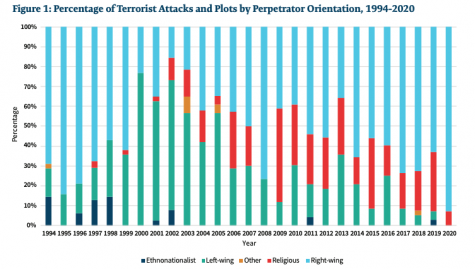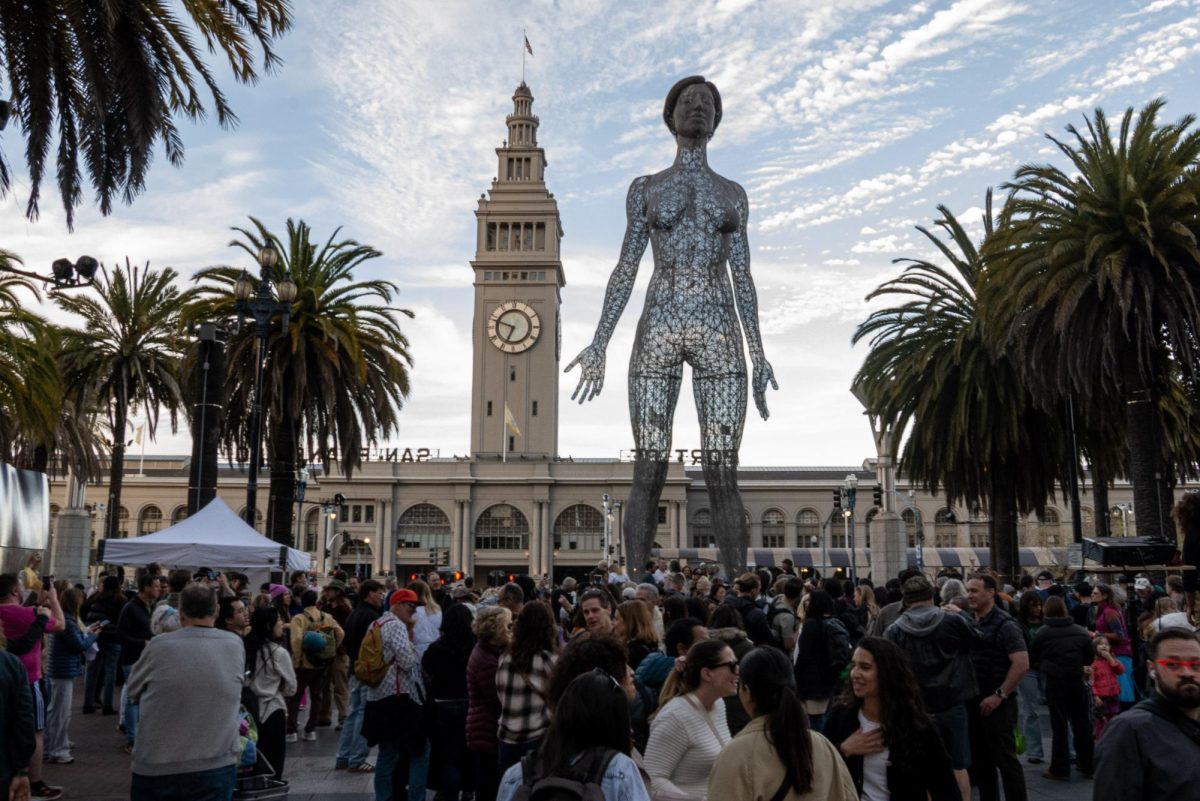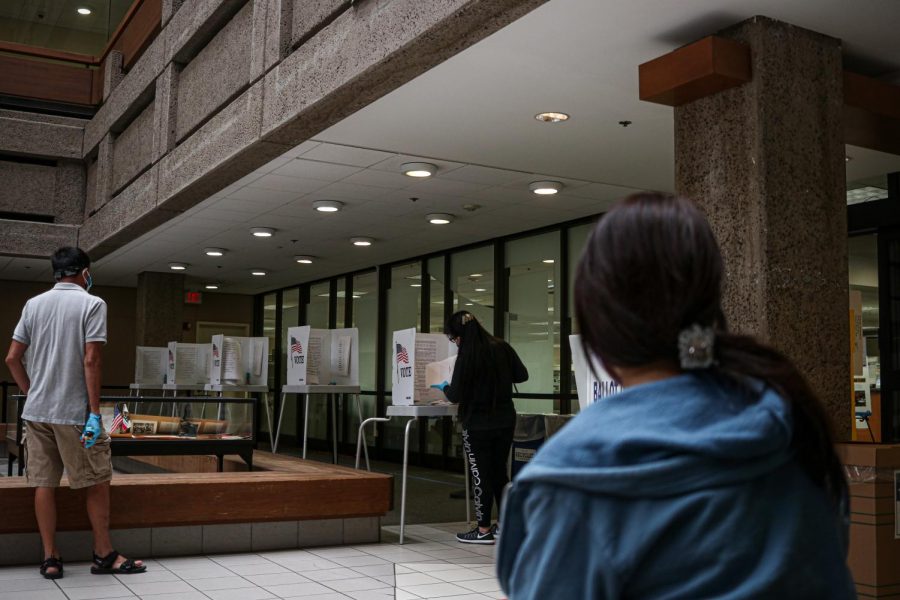In the early 2000s, while Kamala Harris was still working within the walls of San Francisco City Hall, Joe Biden was in the Senate dealing with the aftermath of 9/11. At that time, Biden faced increasing pressure to adopt the Bush administration’s hawkish foreign policy posture.
Two costly wars, encroaching xenophobia and the infringement of civil liberties marred U.S. foreign policy of the early 2000s. Biden was unapologetic in his support of that policy.
“Nine months ago, I voted with my colleagues to give the president of the United States of America the authority to use force, and I would vote that way again today,” Biden said regarding his vote for the Iraq War during a speech to the Brookings Institution.
In a 2004 statement to the 9/11 commission, he also called for an upscaling of police departments as a means of preventing future attacks, “We have not put one new cop on the street since those terrible attacks.”
Jonathon Whooley, International Relations lecturer at SF State, said he believes that Biden’s approach was deliberate.
“He wants to make himself appear as high-integrity,” Whooley said. “And one of the ways to do that is by reinforcing a national security message.”
Biden ultimately voted in favor of the resolution that led to the U.S. intervention in Afghanistan, which has resulted in the deaths of 2,219 U.S. soldiers, according to the U.S. Department of Defense, as well as between 106,000 and 170,000 civilians, according to a study by Physicians for Social Responsibility.
Nick Conway, Political Science professor at SF State, said he thinks that Harris is using her age to carve out a niche when it comes to national security.
“Issues of technology and cybersecurity clearly go hand in hand with younger generations. I think that she might try to posture herself as a bit of an expert — or becoming a bit of an expert — on those issues,” Conway said. “She is very clearly being positioned as a young, vibrant person, as sort of a counterweight to him as the elder statesman.”
As a member of the Senate Intelligence Committee, Harris’ fiery questioning of witnesses during committee hearings has made her the face of the investigations into Russian interference in the 2016 election, which concluded that U.S. electoral cybersecurity was “sorely lacking”.
May the cherished memory of those we lost on September 11th serve to remind us both of who they were as individuals, but also of who we are as a nation: Brave. Resilient. United. pic.twitter.com/uTBkj9MYBf
— Kamala Harris (@KamalaHarris) September 11, 2020
While the committee report noted aging voting equipment, it found no evidence of vote tampering. Rather, Russia’s efforts were focused on misinformation campaigns and sowing division among voters, primarily through, of all things, social media.
Fake accounts and bots propagated on platforms such as Facebook, which Whooley said “flatten[s] out the media, so that the New York Times looks the same as the Pennsylvania Morning Star, which may not exist, may be a Romanian facsimile.”
This technology- and information-based campaign has required a modern approach and careful partnership with the FBI and DHS to monitor Russian disinformation campaigns and plug potential gaps in U.S. cybersecurity.
Differences in each half of the ticket’s approach to national security don’t stop at foreign threats, but also in their focus on domestic ones.
Biden’s response to the attacks on 9/11 manifested itself domestically with his support of the Patriot Act, a bill that massively expanded the ability of the federal government to monitor private communications within the United States as a mean of preventing domestic terrorism, and was in fact heavily based on Biden’s own 1995 Omnibus Counterterorism Act.
Since its passing in 2001, much like the decisions to invade Iraq and Afghanistan, the Patriot Act is widely considered a blunder. The ACLU called it an “unchecked government power to rifle through individuals’ financial records, medical histories, internet usage, bookstore purchases, library usage, travel patterns, or any other activity that leaves a record.”
In contrast, Harris’ focus on domestic terrorism has been more contemporary. In her bid for the presidency, her campaign released a plan on how she would address domestic terrorism. The main strategies were to enact gun control legislation such as closing the online gun sale loophole, enacting universal background checks and directing the National Counterterrorism Center to meet the threat of white-nationalist terrorism and expand its mission to include domestic terrorism.

“[Harris] wants to infuse domestic terrorism law with gun control policies,” Amanda Roberti, assistant Political Science professor at SF State, said. “She’s kind of melded these two issues into one.”
An adjacent threat that Biden and Harris will have to deal with is white nationalism and the alarming rise of reported alt-right violence since 2016.
According to a June report by the Center for Strategic and International Studies, “Right-wing extremists perpetrated two-thirds of the attacks and plots in the United States in 2019 and over 90% between January 1 and May 8, 2020.” Over the course of the 2000s, left-wing terrorist attacks have decreased numbers as right-wing violence has been on a steady incline, according to the report.
In Whooley’s eyes, the national security conversation needs to address the organized nature of the alt-right. He sees the movement as an entity that should be perceived as predictable.
“I think one of the big mistakes is that we take groups like Identity Evropa, or the New Klan, or one of the different franchises, and we tend to imagine them as being stochastic,” he said. “I don’t see them that way, and I don’t think they see themselves that way.”
At a fundamental level, each half of the ticket’s experiences with national security is rooted in a different era, a different challenge and in some ways a very different country. Roberti said she believes there is “a bit of old school and new school in this ticket.”Despite Biden and Harris’ differences, the presidential nominee himself has expressed faith in Harris’ ability to take on that challenge. “As a member of the intelligence committee and the judiciary committee, she’s been in the middle of the most critical national security challenges our country faces,” Biden said at his first joint campaign event with Harris.




![“As a member of the intelligence committee and the judiciary committee, she's been [Kamala Harris] in the middle of the most critical national security challenges our country faces,” Biden said at his first joint campaign event with Harris.(Sheila Fitzgerald / Shutterstock.com)](https://goldengatexpress.org/wp-content/uploads/2020/09/1486862834-huge-900x643.jpg)









